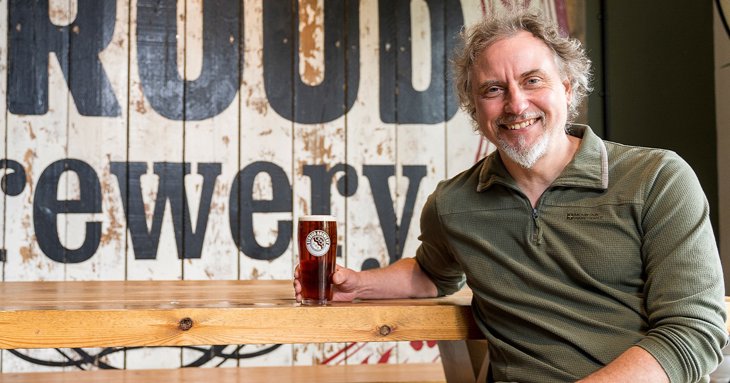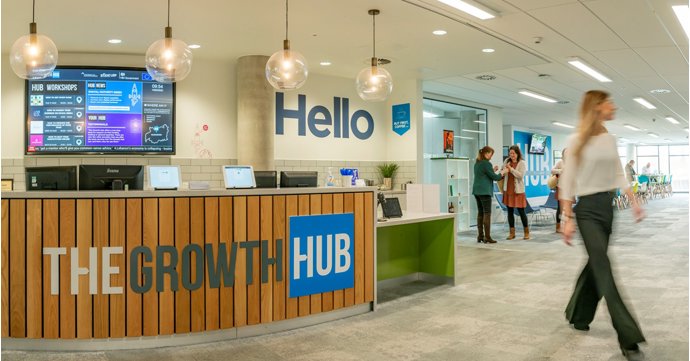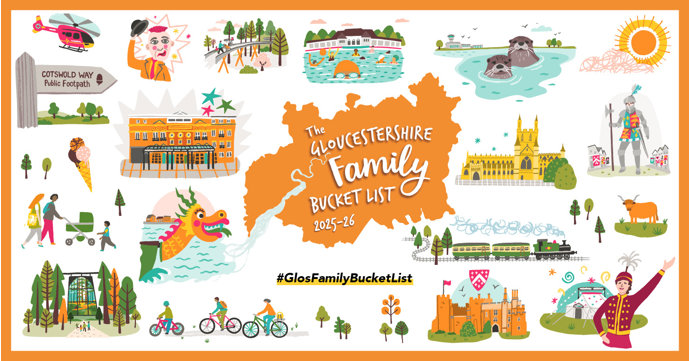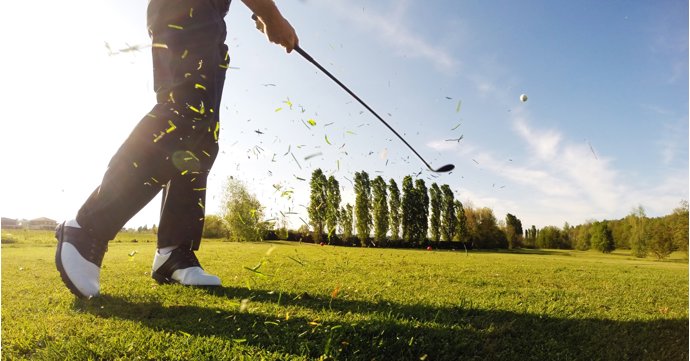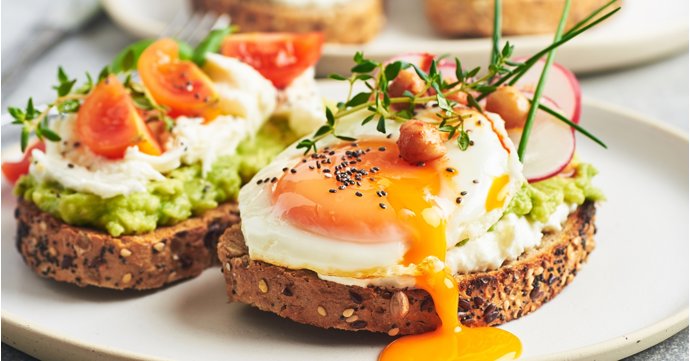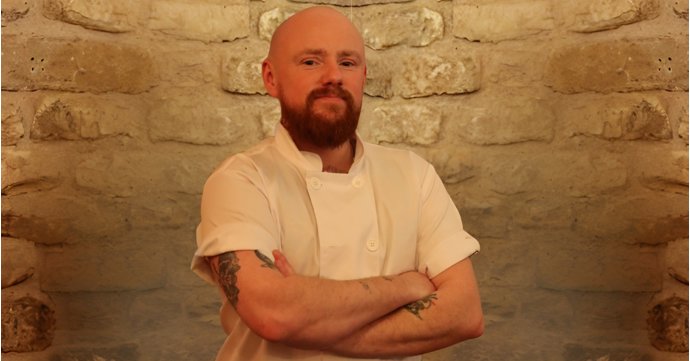Stroud Brewery's Greg Pilley knows a thing or two about brewing delicious beer — and he's been on an epic sustainability journey since starting the brewery in 2006.
SoGlos caught up with the founder of the SGGLA Lifestyle Business of the Year 2023 to ask him why choosing organic beer is important for people and the planet; what makes Stroud Brewery beer so special; and the burning question – does organic beer actually taste better?
What’s the difference between conventional brewing and organic brewing?
The process is not different at all. The brewing of the beer is pretty much the same, the main difference is the ingredients. Ingredients are all of organic origin in terms of the way they're grown and produced.
Organic standards are largely without the use of artificial pesticides and fertilisers, but are also a bit broader and encompass some sustainability, with rules that require packaging to be recyclable, for example. Health is a really important factor within organic standards, too.
We use cans a lot in brewing. Aluminium is toxic and has been linked to Alzheimer's, so all cans are lined with a plastic resin to stop contamination. In Europe, Bisphenol A (BPA) is banned due to endocrine disruption but it is permitted in the UK, so many beverage companies use it to line cans. Organic standards ban the use of BPA, so Stroud Brewery uses BPA-free lining in our cans.
They also stipulate that products must be GMO-free — and the only way to guarantee products are GMO-free is by choosing an organic product. Laxation in labelling means more and more food products have GMO derivatives, which people may or may not be happy with. The requirements of organic standards mean that all ingredients must be GMO-free, including any microorganisms — so the yeast that we use, we have to guarantee it is derived from a GMO-free source.
Our beers are all produced on a batch basis, so each batch is separated. All organic ingredients are also segregated so there's no chance of mixing them up. It also means we need to rinse out our pipework to ensure there are no traces of anything left behind, so our procedures are a bit different.
One of the key organic standards tests is the mass test, which compares how much you bought in and how much beer you produced, to guarantee that what you've made uses only the ingredients you bought in. That's the essence of the inspections.
You're clearly very passionate about organic and sustainable brewing, why is that?
I often hear in press releases that I started the brewery with a vision to be sustainable. I actually started the business to brew great beer, and in retrospect, having lived a previously itinerant lifestyle, I needed a reason to be in Stroud.
In terms of my background, my dad was an engineer and I travelled all over the world as a kid; I did an environmental degree and graduated in marine biology; I went into conservation work both on farms here and in Nigeria; so I already had an awareness of the impact people have on the planet. I also had a global perspective from having travelled and worked in developing countries — all our actions have a direct impact.
Immediately before the brewery I worked with the Soil Association charity in the local food team, enabling community-based food projects, so I was already working with communities on food access and connecting with local farms, influencing the local landscape.
I wanted to bring that knowledge and approach into the business, so locality, local procurement and cutting down food miles was really important. That manifested in looking for a local malt supplier, with most of the malt coming from the Cotswolds within a 10 to 15-mile radius.
Stroud Brewery started brewing organic beers in 2008. Pubs weren't really buying local beers at that time, only big national bland brands. They wouldn't pay a premium, it was all based on the alcohol content, and most people weren't going into pubs to ask for an organic beer. Then the recession and pubs closing meant that we started bottling, but decided that all our bottled beers would be organic.
We started with a very informal Crowdfunder with money from friends. We formalised that a few years later with a wider Crowdfunder which raised £100,000 almost overnight to match a European Rural Development Fund project grant, which we qualified for. That project was all about taking local barley and adding value to it.
The investment was matched by this Crowdfunder, where we paid five per cent interest and offered 20 per cent off all beer, which really helped us grow in 2009/10.
In 2017, I was given notice on my building and we had to find somewhere else, which is how we ended up in our current location. We found a plot of land, applied for planning permission, a neighbouring business helped us to fund it, they are now our landlord and shareholders in the business.
We had to do another Crowdfunder to help us move in and build the bar. We raised £300,000 through a community bond facilitated by Triodos Bank, which is one of the very few ethical banks that doesn't invest in arms or tobacco. It did invest in alcohol, but only based on us being a responsible business!
So our finances are all sustainable, our raw materials are the best way to treat the land and we have been a living wage employer for more than 10 years, meaning we pay at least the minimum deemed required to live in the UK, which is more than the minimum wage. Since we moved into the building we've operated on 100 per cent green power from Ecotricity — another Stroud business. More recently, we've installed things like rainwater capture on roofs for our toilets and solar panels.
When we moved into this building in 2018/19 it was much bigger with bigger overheads, so we had to grow very rapidly. We had a really strong, loyal, local customer base, but when we started selling products further afield, we had to ask ourselves how we could make ourselves relevant outside our own community. Sustainability was a big part of that story.
It's quite complex and there's a lot to it, so I looked into B Corp certification to help us communicate that, and as a more holistic measure of environmental and social performance. We certified in 2018 and increasingly, B Corp is becoming shorthand for sustainable and responsible business.
In 2017 when I first started looking at it, it was a lot of time and money — and people were asking me, 'are you just wasting more time on this stuff Greg'? But now I think that not only is it an accreditation and a reassurance to customers, it's also become a measuring, reporting and managing tool for our business. We're looking to improve all the time and we look at that as a measure of our sustainability.
As a consequence, our directors have looked at their own businesses — one is becoming a B Corp, one has adopted an ISO marque, so I think I have influenced their businesses as much as they have ours.
These days, the bottom line is that we all have an impact and the more we consume, the more impact we have. It's quite simple, so we just have to have simpler lives.
Does organic beer taste better?
You know, I wouldn't say that organic beer tastes better than conventional beer, per se. We've already established the brewing process is the same, but there's so much that goes into making a great tasting beer. Ingredients, hygiene, recipe, there's such a lot that goes into it.
So I wouldn't say organic or non-organic is any better in terms of taste — but Stroud Brewery consistently wins awards against conventional breweries, so we make as great tasting beer as any other brewery.
We were in the Society of Independent Brewers (SIBA) regional competition recently where there were 40 awards and we came away with four golds. No silver, no bronze, all gold for our beers. Out of 40 entries, only eight breweries in the region took home a gold and we were one of them.
We're yet to see what happens in the March nationals, which is quite a contest!
Is organic beer better for you? Is it less likely to give you a hangover, for example?
None of those claims are true — its beer, it's alcoholic, the more you drink, the more it's going to affect your head! What is true, is that some beers might have preservatives in them, which might not be great for you.
What organic beer doesn't have is the traces of pesticide and herbicide, which cumulatively over a lifetime may not be good for you either.
There's a whole story around hop growing in the UK, with the UK climate becoming warmer and damper. Hops suffer terribly from disease, so it costs farmers a lot to grow hops and they tend to end up spraying them, even if they don't want to. In the same way that conventional cereals are routinely sprayed as part of their management, this tends to happen with hops. Even ripening hops can require a herbicide, which essentially kills it off in order to ensure it ripens in time.
One of the principles of organic is to avoid pesticides and herbicides on a precautionary basis.
Many people are looking into the benefits of gut health, which organic may be better for. There's also a lot of research that says organic tends to be more nutrient dense for the same quantity, so there's more micronutrients in organic food.
In terms of beer, the more you drink, the worse it is for you — but organic beer is better for the land and for biodiversity.
Why is it important for drinkers to choose organic and sustainable beers? What are the benefits to them?
It's true to say that most organic producers are smaller, artisan brewers that care about the product and are willing to pay the premium to have a conscience around why they're doing it — it's not purely for profit.
For drinkers, small scale, independent, consciously-crafted matters and organic is a good baseline for that.
The primary thing isn't usually health or not getting a hangover, it's the origin of the ingredients. There is at least 75 per cent more wildlife and biodiversity on organic farms compared to conventional farms, with around 50 per cent more bees, too, because the pesticides don't kill them off. There are more birds, as pest control comes from introducing predator species — and we're recognising that more complex ecosystems are more stable and resilient.
In a global context, there's a lot of talk about carbon and climate, how we manage global warming, but the whole reason we're doing it is to preserve biodiversity and life on the planet. That's the ultimate aim. Not just keeping it cool. So we also need to look at how we manage the land, keeping wildlife and diversity in our farms; not cutting down landscapes like the Amazon.
If you want a landscape full of creatures, we can't keep spraying them off and creating these deserts of crops. That's why organic is so important.
Is organic beer still relatively rare, or is it growing in popularity?
It has been rare. I think there's somewhere between 2,000 and 2,300 breweries in the UK; about 22 to 24 organic brands; but only five or six breweries dedicated to organic beer — and we're one of them.
Larger breweries like Fuller's and Sam Smith do a range of organic beers, so there are a few organic brands created to meet the market, but there's not many that do it because they believe it is the right thing to do.
It's a decision we made. We were brewing conventional and organic beers — and it is cost, it is profit off the bottom line, but it didn't sit right with us, which is why we're now a dedicated organic brewery.
Over the last few years, awareness around sustainability has become more of a thing. Organic is starting to equal sustainability. But it is very much an economic decision for most people, not a value-based decision, otherwise why wouldn't all breweries do it?
There are around 12,000 tonnes of organic barley malted for brewing each year. There's around 1.8 million tonnes of conventional barley. If there is 50 to 75 per cent more wildlife on organic farms, if all breweries adopted just organic barley, imagine the impact that could have on UK wildlife.
As well as the Stroud Brewery taproom, where can you find Stroud Brewery beers on draught across Gloucestershire?
Our core customers are Gloucestershire pubs. It's what we set the business up for largely and there's probably around 50 to 80 pubs that order from us regularly for their house beers every week. Each of those customers is important to us.
We are now starting to do a bit more wholesaling with pubs nationally, largely due to the quality of the beer — and we as a business really want to champion cask as a way of drinking.
Cask is the traditional barrel which is tapped and then gravity does the work — and it's something that has really suffered over the last few years.
What people might recognise as craft beer is usually keg. Keg uses gas to push the beer out, it's chilled and is very new age. BrewDog beers, for example, are keg.
A traditional pub is associated with cask ales. Some people might think that's old fashioned and boring, but a good landlord needs skill to maintain a tasty cask beer. Cask beer has evolved over centuries if not millennia in the UK as away of transporting great beer, with no technology and no chilling. It represents a long tradition and credits the skills of those publicans.
What would the UK be without a traditional pub? They don't exist anywhere else in the world, outside of themed pubs. It's our unique drinking culture and people forget that.
Cask is also the most sustainable way of drinking beer by far. Keg is still the second best, as you reuse the container and it's not being transported in tiny cans. Bottles are the worst for environmental impact.
Stroud Brewery does sell beer in cans as well – where can people buy them?
Predominantly, if you're local, we'd encourage you to pop into the brewery or go on the website for direct sales.
We've long sold to independent farm shops and delis locally. Some notable ones in Stroud are Made in Stroud, Kendrick Street Deli, which has been a champion of our beers for ages, and we're at Stroud Farmers' Market every week.
We supply various wholesalers around the UK, which supply to those kinds of shops. Cafes and restaurants also sell our beer in cans as part of their food and drink offering.
If your drink of choice is usually a big brand lager, which Stroud Brewery beer would you recommend swapping to?
We already do two lagers — one is LOL, light organic lager, which is a four per cent lager that won gold in the SIBA regional competition. It's light, easy drinking, perfect for summer. That's a simple transition. We also do a premium organic lager — POL — which has a bit more character.
For anyone being a bit more adventurous, we do lots of pale ales. Pale ales don't have that dark malt character, but come in degrees of hoppiness, so they can have hoppy character or bitterness, which might frighten off lager drinkers.
Easy Peasy is a 2.6 per cent very hoppy pale ale that's not too bitter or strong, but has lots of flavour. Our flagship pale ale is Budding, which is a 4.5 per cent cask beer and has a level of bitterness but is balanced with sweetness — and lots of people enjoy that level of flavour.
We also have our organic pale ale — OPA — which was the organic cask product back in the day and was deliberately designed to be an easygoing pale ale. That one is four per cent and uses lager hops.
My personal favourite has to be Budding. It's been around the longest, it's not too strong but strong enough, has great character and a bit more going on with it. That's my go-to beer. I will always switch around to what's seasonal, but my default would be Budding.


